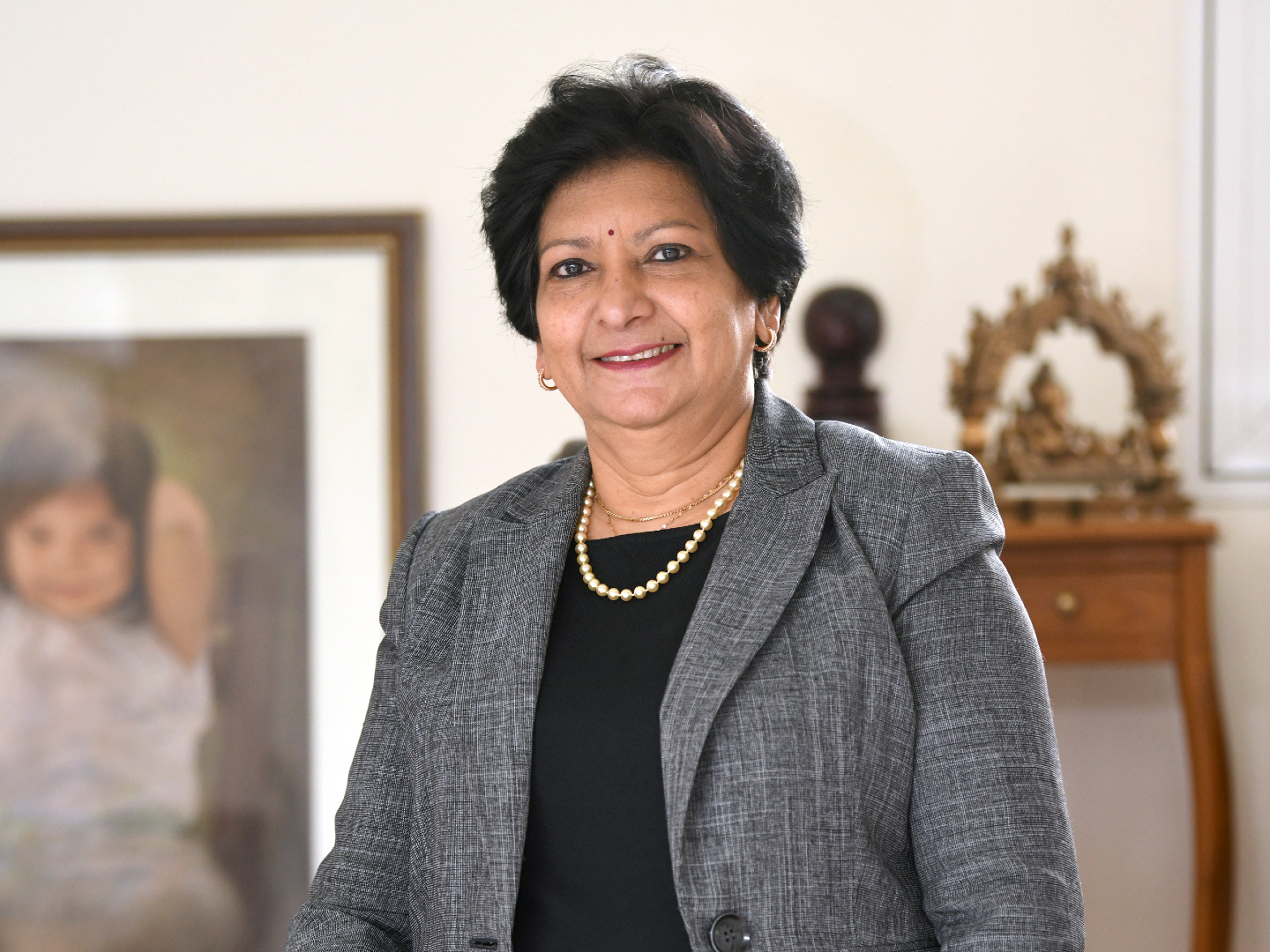
The former Malaysian envoy spent 34 years with the Ministry of Foreign Affairs (Photo: Mohd Izwan Mohd Nazam/The Edge)
Although Netflix hit The Crown is a historical drama that is only based on real-life events, the award-winning show has managed to stir up many latent anti-colonialist sentiments in people across the Commonwealth and beyond, who now may view the idea of the British Empire with some amount of weariness. While some of this is in part due to the very idea of colonialism seeming so foreign to the younger generation, it also arises from the less than proper ways in which the British (and indeed, many other nations) went about their business back in the day — for example, many countries would really like some of their artefacts back from museums in the UK, please.
Having said that, our collective colonial history and membership in the Commonwealth is something we’ve benefited from. What’s known as the “Commonwealth advantage” is rooted in the fabric of a shared history, values, language, legal, institutional and government ties that influence commerce, trade and investment. Traders and investors benefit from familiar legal and administrative systems, as well as similarities in business, commercial and legislative practices. This cultural congruence extends to sporting rivalry and even the family ties that have resulted from generations of intra-Commonwealth immigration.
Should the question of relevance of the Commonwealth arise, consider this fact: the most recent members of this oldest political association in the world are Rwanda and Mozambique — African nations with no historical ties to the British Empire whatsoever. Clearly, there’s something good to be said about this culturally and geographically diverse union of nations.
The Commonwealth of Nations as we know it today was born in 1949. The Commonwealth Secretariat was created in 1965 as a central inter-governmental organisation to manage the Commonwealth’s work. And in 1966, the Commonwealth Foundation was established to recognise the value of people acting outside the realm of government that had been brought to this association of nations. In 1982, it was recast as an inter-governmental organisation that would act as a voice for civil society for its member nations while advancing a development agenda that was broadly aligned with the Commonwealth’s priorities.
The Commonwealth Foundation’s current chair is Datuk Sudha Devi K R Vasudevan, whose appointment is historic as she is the first Malaysian and the first chair from Asia since the foundation’s establishment. Her tenure as chair began in January and will last for two years. A recently retired career diplomat, she was nominated by the Malaysian government and her candidacy gained the highest number of votes from the foundation’s board of governors.
Like many others, I hadn’t even known of the existence of the Commonwealth Foundation prior to the announcement that a Malaysian was to be its new chair. Surprised that her appointment received as much media attention as it did, Sudha feels that the real story here is the values and vision that the Commonwealth Foundation represents and how important supporting civic agencies are in this day and age.
“The foundation is unique in that no other global organisation has been established for civic society,” she says. “It encourages and supports the participation of civic and non-governmental organisations to effectively contribute to the process of policymaking and governance, so we can create sustainable policies that would improve lives and livelihoods. It’s about people working together with governments. There was a time when NGOs were seen as opposing governments, or being on the opposite side. What the foundation wants to do is see how civic society can constructively contribute to policymaking and sustainable development.”
commonwealthpf1-a18vc639.jpg
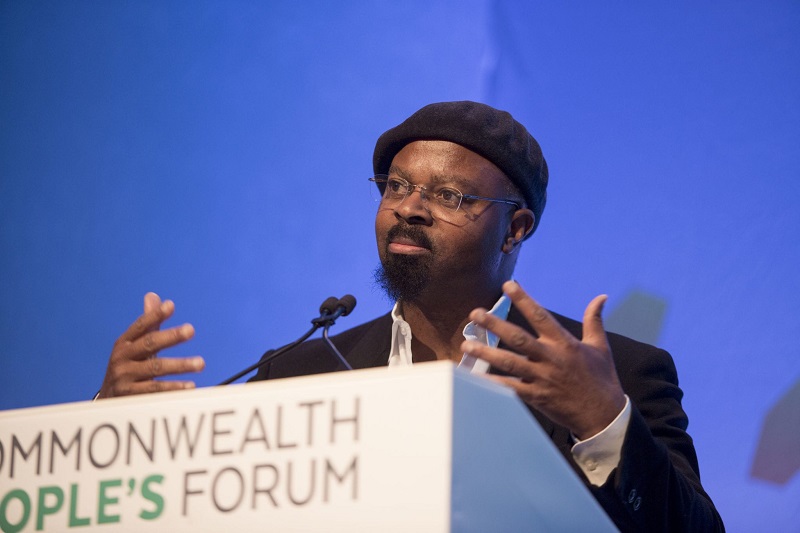
For example, one of the largest civic society gatherings in the world, the Commonwealth People’s Forum, is the brainchild of the foundation. It convenes every two years ahead of the Commonwealth Heads of Government Meeting, giving residents of the Commonwealth the chance to have a say in issues and decisions that directly affect their lives. By bringing important — and often unheard — voices into CHOGM, the People’s Forum affirms the Commonwealth’s values of democracy, justice and people-centred governance. The forum was meant to be held last year in Kigali, Rwanda. But due to the pandemic, it will be held this June instead.
Outside of events like these, the foundation supports three main programmes in all the countries where it operates — participatory governance and gender, a grants programme and the Commonwealth Writers competition.
In Malaysia, four NGOs have benefited from grants that support their work: Development of Human Resources in Rural Areas were able to train 120 paralegals to assist stateless persons in gaining access to services, Empower enables other NGOs to continuously and systematically monitor human rights records, Pacos Trust fosters greater recognition and resilience of indigenous groups and their practices in natural resource stewardship and the Third World Network engages decision-makers to improve access to affordable medicines by working through intellectual property provisions in India and Malaysia. On the cultural side, Malaysian writers Sharmini Aphrodite, Saras Manickam and Lokman Hakim have all had their work highlighted in adda, the Commonwealth Writers online magazine.
The foundation chair is an international appointment and ordinarily requires some amount of travel to represent the foundation at inter-governmental meetings and public events. This is now rendered impossible by the Covid-19 pandemic, but to paraphrase the great Freddie Mercury, the work must go on.
pacos_trust.jpg
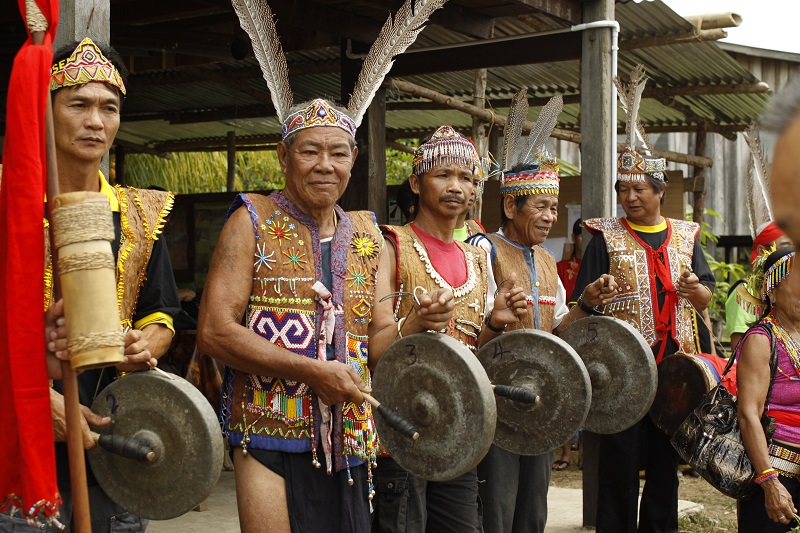
“The pandemic has required us to be creative and flexible,” says Sudha. And I think the use of technology has really helped — it’s not ideal, but it helps us carry out the work. Meetings and consultations are done virtually, so being in lockdown hasn’t impacted our ability to carry out our responsibilities. The grants have been disbursed, for example, and the submitted projects for the next two years have been approved. But I think the bigger impact is on civil society organisations, whose work has been affected by the pandemic a fair bit. One of the challenges is in ensuring project completion.”
Indeed, Sudha’s own retirement happened at the height of the pandemic last year, soon after which she was contacted to take on the position of the Commonwealth Foundation’s chair. Our conversation meanders to what she had in mind at the time as a new retiree and how the appointment has changed her plans.
“The best advice I was given prior to retiring was to apportion my time to three things based on my priorities — a job, should I require an income, family and social work,” she shares thoughtfully. “When I was asked if I was agreeable to be the Malaysian candidate for the foundation’s chair, I thought it would suit me well. It’s not a 9 to 5 job, I get to be based here in KL and the work will keep me occupied enough without having to adhere to a strict schedule. Since it’s a non-executive post, I see it as part of the volunteering aspect and I get to do good for the country and the international community. The job will, once things change, give me a chance to travel again too.”
An economics graduate from the University of Malaya, Sudha spent her 34-year career with the Ministry of Foreign Affairs, which included postings in Europe, Southeast Asia, South America and across Asia-Pacific. Her expertise lies in diplomacy, policy planning, creation of strategic dialogues among nations, leading transformation and innovation programmes, dealing in crisis management and communication, creating avenues for youth to speak up and adding value to the policymaking process in the departments of the ministry. Between 2011 and 2014, she was recognised by cultural organisations in Brazil for her work to promote Malaysian culture and traditions as well as the role of women in diplomacy and international relations.
asean_committee_in_brasilia_hosted_a_dinner_for_h.e._ms._sudha_devi_k.r._vasudevan_ambassador_of_malaysia_to_brazil_.jpg
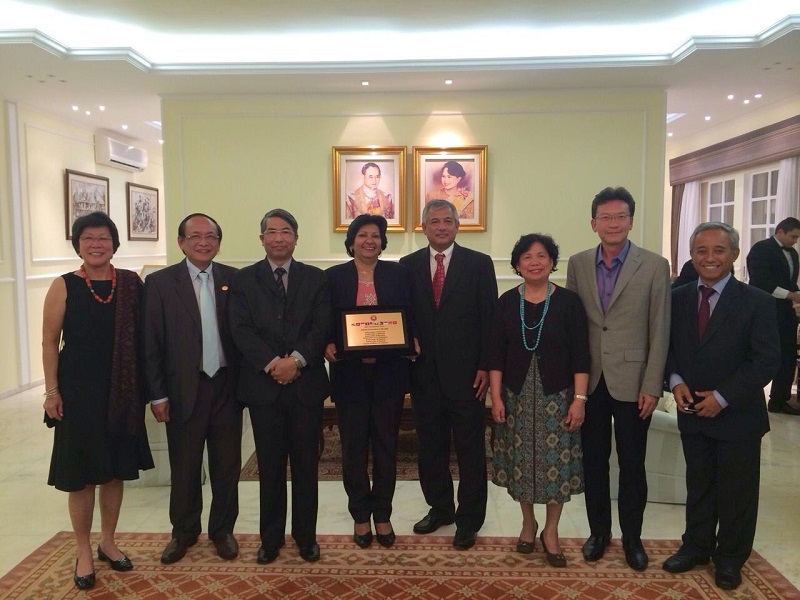
During our hour-long interview, I could easily imagine her as a truly commanding figure in any setting — she is a brilliant conversationalist, composed yet energetic and speaks in firm, elegant tones. She is also warm and motherly, seamlessly melding this softer part of her personality with her forthright, articulate nature. Considering that her role requires her to pull together the opinions of the foundation’s diverse board of governors, opting for the trained skills of a diplomat seems like a good choice.
Sudha laughs agreeably. “My role, or what I want to do, is effectively support the work of the foundation. My predecessor has done a lot of good work and the foundation has achieved its objectives, and I want to build on that. The stewardship and leadership of an inter-governmental body requires the highest form of public accountability. If I were to achieve that, steering the foundation towards achieving its mission and vision and ensuring the foundation is flexible and nimble enough to address the challenges that come along, I would have very successfully played my part.”
In 2012, the Commonwealth Foundation reinvented itself and launched a strategic plan that marked the third phase of its evolution. Each strategic phase would last five years, with the first (from 2012 to 2017) centred on a more outcome-based orientation to its work. The second phase, which ends this year, has built on the external evaluation and reaffirmed the foundation’s focus on participatory governance.
com_1601-800x534.jpg
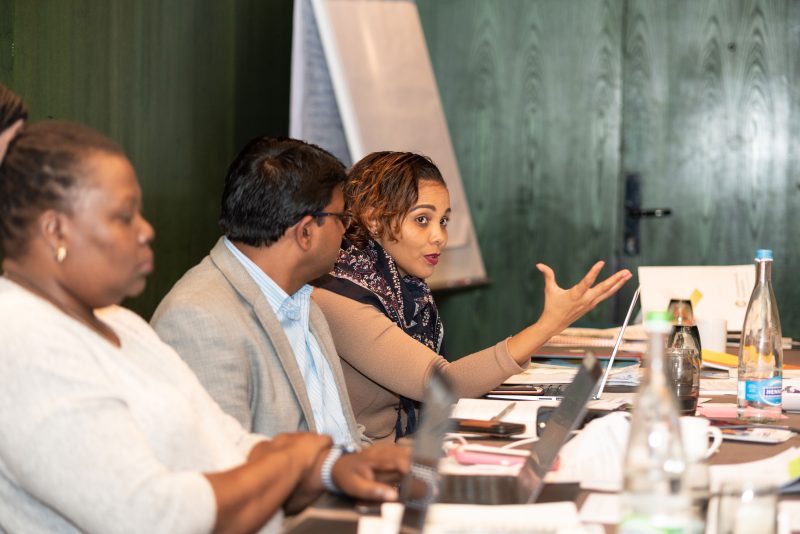
As the third phase (from 2021 to 2026) is being worked on and will be presented to the foundation’s board of governors in June, Sudha is in the driver’s seat when it comes to the foundation’s future direction, which is anchored on maintaining focus and generating impact while managing high expectations with its limited resources and capacity owing to the effects of the pandemic. The relatively short timeline of this five-yearly strategic plan does indicate the willingness of the foundation to be agile and continue evolving with the times — and in extension, the Commonwealth’s ability and willingness to evolve too.
Geopolitics has seen a time of extreme change, especially in the last three decades, and it can be said that the Commonwealth provides its 54 member nations a unique sense of stability. As we talk about this, Sudha also addresses the roots of the Commonwealth — the idea of colonialism doesn’t quite resonate with the generations of people born so long after their country’s independence, neither does an association of nations founded on being former colonies.
“The Commonwealth may have been founded on a historical past, but it has moved past that colonial narrative,” she observes. “That so many nations have chosen to remain as members says a lot, considering that membership is voluntary. And of course, Mozambique and Rwanda’s membership says a lot too. If I can sum it up — it has become a collaborative and democratic effort to communicate shared principles and values. Democracy, human rights, sustainable economic practices, social development — countries that pursue these ideals find in the Commonwealth a platform that allows them to discuss these, share ideas and apply for funding as well. It has moved away from being solely political to being more economically and socially driven. It has survived for 70 years and I do believe it will continue to reinvent itself with the changing environment.”
The subject of geopolitics, which Sudha has watched from a unique vantage point as a diplomat, comes up again. “The last three decades have been characterised by rapid, relentless and dramatic change, resulting in disruptive times. These are the words I would use to describe the change in geopolitics,” she comments. “Soon after the collapse of the Soviet Union, there was a euphoria about democracy in new countries that were being established. Then, there was a historical, post-Cold War era that saw a bipolar world move to a multipolar world and the existence of a new world order. This change brought about globalisation, which shrank the world into one big village.
“When this happened, many issues that were country-specific became cross-border or transboundary. As we become more interconnected and interdependent, all these issues require a convergence of views instead of working against one another or in isolation. No one country can deal with issues like climate change, refugees, nuclear proliferation — you have to work together! The Commonwealth is the only global organisation that brings so many diverse nations together — Asean is for Southeast Asia, the European Union is for Europe, but the Commonwealth is the only one that cuts across all six continents. This association, if it remains nimble and sees opportunities, can really contribute positively to its member states.”
The foundation is very much a reflection of this — it has the potential for immense good if it continues to adapt and accommodate to a changing world, the rate of which has been accelerated in recent times. Sudha’s role is to lead the foundation in a direction that is continually supportive, agile and adaptive, as well as sensitive to the needs of a world still reeling from the effects of the pandemic. There is little doubt that she will thrive regardless.
We will still need to talk about our stuff in UK’s museums, though.
This article first appeared on Mar 15, 2021 in The Edge Malaysia.


